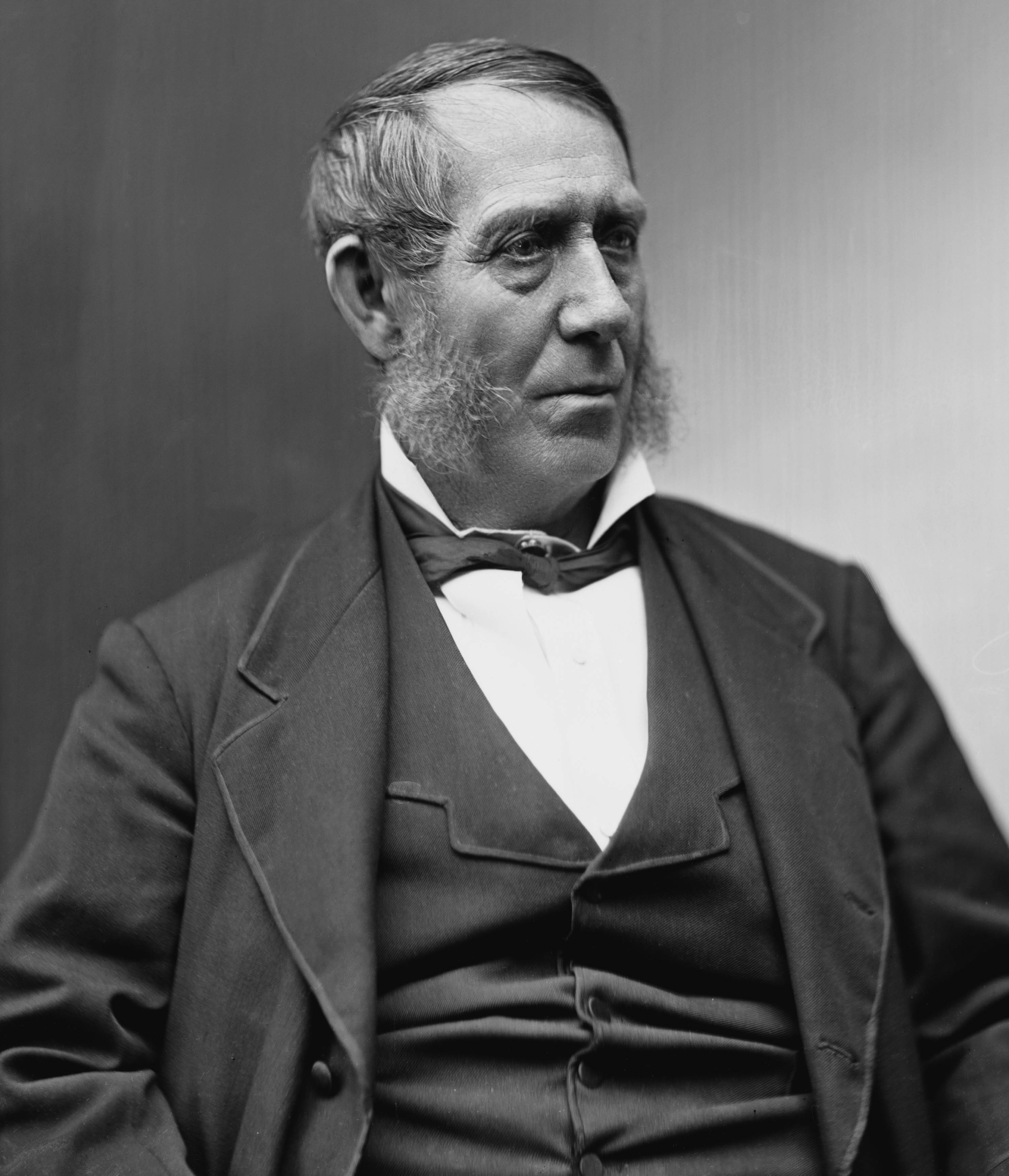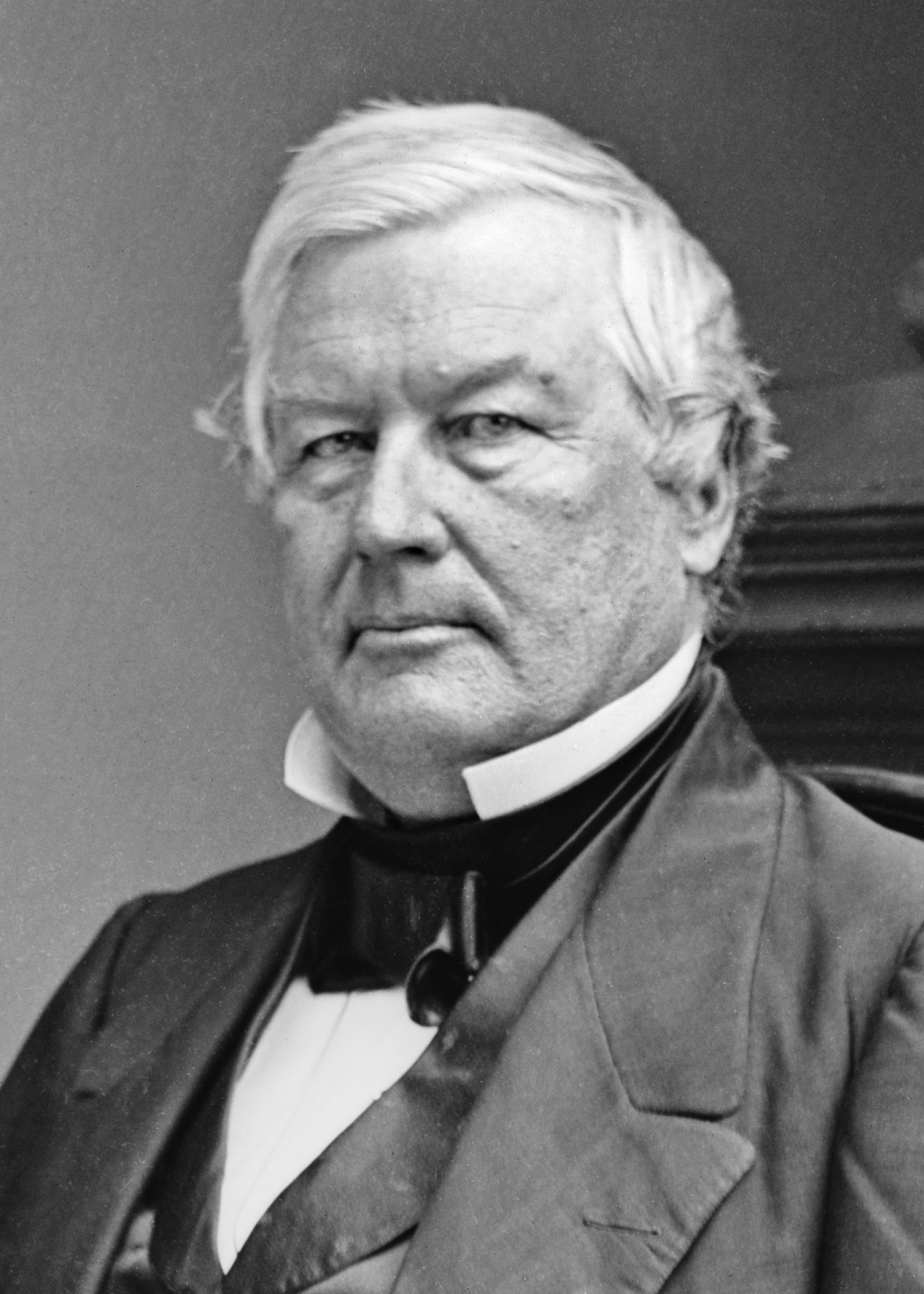|
Shepherd Leffler
Shepherd Leffler (April 24, 1811 – September 7, 1879) was one of the two original U.S. Representatives to represent Iowa when the state was first admitted to the Union. Elected as a Democrat in 1846, Leffler went on to represent Iowa's 2nd congressional district in the U.S. House for additional terms. Early life and education Leffler was born on his grandfather's plantation, "Sylvia's Plain," in Washington County, Pennsylvania, near Wheeling, Virginia (now West Virginia). He attended private schools and was graduated from Washington College in Washington, Pennsylvania, and from the law department of Jefferson College (now Washington & Jefferson College), in Canonsburg, Pennsylvania, in 1833. He was admitted to the bar and commenced practice in Wheeling. In 1835 he moved to what is now Burlington, Iowa (then a part of Michigan Territory, the next year a part of Wisconsin Territory, and the next year the initial capital of Iowa Territory). He served as member of the Iowa Territ ... [...More Info...] [...Related Items...] OR: [Wikipedia] [Google] [Baidu] |
Iowa
Iowa () is a U.S. state, state in the Midwestern United States, Midwestern region of the United States, bordered by the Mississippi River to the east and the Missouri River and Big Sioux River to the west. It is bordered by six states: Wisconsin to the northeast, Illinois to the east and southeast, Missouri to the south, Nebraska to the west, South Dakota to the northwest, and Minnesota to the north. During the 18th and early 19th centuries, Iowa was a part of Louisiana (New France), French Louisiana and Louisiana (New Spain), Spanish Louisiana; its Flag of Iowa, state flag is patterned after the flag of France. After the Louisiana Purchase, people laid the foundation for an agriculture-based economy in the heart of the Corn Belt. In the latter half of the 20th century, Iowa's agricultural economy transitioned to a diversified economy of advanced manufacturing, processing, financial services, information technology, biotechnology, and Sustainable energy, green energy productio ... [...More Info...] [...Related Items...] OR: [Wikipedia] [Google] [Baidu] |
Constitutional Convention (political Meeting)
A constituent assembly (also known as a constitutional convention, constitutional congress, or constitutional assembly) is a body assembled for the purpose of drafting or revising a constitution. Members of a constituent assembly may be elected by popular vote, drawn by sortition, appointed, or some combination of these methods. Assemblies are typically considered distinct from a regular legislature, although members of the legislature may compose a significant number or all of its members. As the fundamental document constituting a state, a constitution cannot normally be modified or amended by the state's normal legislative procedures in some jurisdictions; instead a constitutional convention or a constituent assembly, the rules for which are normally laid down in the constitution, must be set up. A constituent assembly is usually set up for its specific purpose, which it carries out in a relatively short time, after which the assembly is dissolved. A constituent assembly is a ... [...More Info...] [...Related Items...] OR: [Wikipedia] [Google] [Baidu] |
1811 Births
Events January–March * January 8 – An unsuccessful slave revolt is led by Charles Deslondes, in St. Charles and St. James Parishes, Louisiana. * January 17 – Mexican War of Independence – Battle of Calderón Bridge: A heavily outnumbered Spanish force of 6,000 troops defeats nearly 100,000 Mexican revolutionaries. * January 22 – The Casas Revolt begins in San Antonio, Spanish Texas. * February 5 – British Regency: George, Prince of Wales becomes prince regent, because of the perceived insanity of his father, King George III of the United Kingdom. * February 19 – Peninsular War – Battle of the Gebora: An outnumbered French force under Édouard Mortier routs and nearly destroys the Spanish, near Badajoz, Spain. * March 1 – Citadel Massacre in Cairo: Egyptian ruler Muhammad Ali kills the last Mamluk leaders. * March 5 – Peninsular War – Battle of Barrosa: A French attack fails, on a larger Anglo-Portuguese-Sp ... [...More Info...] [...Related Items...] OR: [Wikipedia] [Google] [Baidu] |
John P
John is a common English name and surname: * John (given name) * John (surname) John may also refer to: New Testament Works * Gospel of John, a title often shortened to John * First Epistle of John, often shortened to 1 John * Second Epistle of John, often shortened to 2 John * Third Epistle of John, often shortened to 3 John People * John the Baptist (died c. AD 30), regarded as a prophet and the forerunner of Jesus Christ * John the Apostle (lived c. AD 30), one of the twelve apostles of Jesus * John the Evangelist, assigned author of the Fourth Gospel, once identified with the Apostle * John of Patmos, also known as John the Divine or John the Revelator, the author of the Book of Revelation, once identified with the Apostle * John the Presbyter, a figure either identified with or distinguished from the Apostle, the Evangelist and John of Patmos Other people with the given name Religious figures * John, father of Andrew the Apostle and Saint Peter * ... [...More Info...] [...Related Items...] OR: [Wikipedia] [Google] [Baidu] |
1875 Iowa Gubernatorial Election ...
The 1875 Iowa gubernatorial election was held on October 12, 1875. Republican nominee Samuel J. Kirkwood defeated Democratic nominee Shepherd Leffler with 57.03% of the vote. General election Candidates Major party candidates *Samuel J. Kirkwood, Republican *Shepherd Leffler, Democratic Other candidates *J. H. Lozier, Prohibition Results References {{Reconstruction Era 1875 Iowa Iowa () is a U.S. state, state in the Midwestern United States, Midwestern region of the United States, bordered by the Mississippi River to the east and the Missouri River and Big Sioux River to the west. It is bordered by six states: Wiscon ... [...More Info...] [...Related Items...] OR: [Wikipedia] [Google] [Baidu] |
Biographical Directory Of The United States Congress
The ''Biographical Directory of the United States Congress'' (Bioguide) is a biographical dictionary of all present and former members of the United States Congress and its predecessor, the Continental Congress. Also included are Delegates from territories and the District of Columbia and Resident Commissioners from the Philippines and Puerto Rico. The online edition has a guide to the research collections of institutions where member's papers, letters, correspondence, and other items are archived, as well as an extended bibliography of published works concerning the member (a shorter bibliography is included with the member's biography). These additional resources, when available, can be accessed via links at the left side of the member's page on the website. History Charles Lanman, author, journalist, and former secretary to Daniel Webster, gathered the first collection of biographies of former and sitting members of Congress for his ''Dictionary of Congress'', published ... [...More Info...] [...Related Items...] OR: [Wikipedia] [Google] [Baidu] |
Aspen Grove Cemetery (Burlington, Iowa)
Aspen Grove Cemetery is a cemetery in Burlington, Iowa. History Aspen Grove Cemetery was established in 1843. The Aspen Grove Cemetery Association was approved by the Legislature of the Iowa Territory in December 1843 and they first met on January 3, 1844. Charles Starker, the first president of the Cemetery Association, designed and laid out a large portion of the cemetery. Initially, ten acres were purchased in 1844 and an additional eight acres were purchased shortly after. In 1866, 32 more acres were purchased for the cemetery. Between 1867 and 1875, the cemetery had 2,173 interments. By 1887, the cemetery had near 9,000 interments. By 1935, the cemetery had 32,000 interments and had expanded to around 100 acres. By 1930, the cemetery started expanding to the north, laying out roads closer to Sunnyside Avenue. Notable interments * G. F. A. Atherton (1790–1882), member of the Wisconsin State Assembly and Wisconsin Legislature * Tony Baker (1945–1998), NFL player of the ... [...More Info...] [...Related Items...] OR: [Wikipedia] [Google] [Baidu] |
Samuel J
Samuel ''Šəmūʾēl'', Tiberian: ''Šămūʾēl''; ar, شموئيل or صموئيل '; el, Σαμουήλ ''Samouḗl''; la, Samūēl is a figure who, in the narratives of the Hebrew Bible, plays a key role in the transition from the biblical judges to the United Kingdom of Israel under Saul, and again in the monarchy's transition from Saul to David. He is venerated as a prophet in Judaism, Christianity, and Islam. In addition to his role in the Hebrew scriptures, Samuel is mentioned in Jewish rabbinical literature, in the Christian New Testament, and in the second chapter of the Quran (although Islamic texts do not mention him by name). He is also treated in the fifth through seventh books of ''Antiquities of the Jews'', written by the Jewish scholar Josephus in the first century. He is first called "the Seer" in 1 Samuel 9:9. Biblical account Family Samuel's mother was Hannah and his father was Elkanah. Elkanah lived at Ramathaim in the district of Zuph. His ge ... [...More Info...] [...Related Items...] OR: [Wikipedia] [Google] [Baidu] |
Governor Of Iowa
A governor is an administrative leader and head of a polity or political region, ranking under the head of state and in some cases, such as governors-general, as the head of state's official representative. Depending on the type of political region or polity, a ''governor'' may be either appointed or elected, and the governor's powers can vary significantly, depending on the public laws in place locally. The adjective pertaining to a governor is gubernatorial, from the Latin root ''gubernare''. Ancient empires Pre-Roman empires Though the legal and administrative framework of provinces, each administrated by a governor, was created by the Romans, the term ''governor'' has been a convenient term for historians to describe similar systems in antiquity. Indeed, many regions of the pre-Roman antiquity were ultimately replaced by Roman 'standardized' provincial governments after their conquest by Rome. Plato used the metaphor of turning the Ship of State with a rudder; the Lati ... [...More Info...] [...Related Items...] OR: [Wikipedia] [Google] [Baidu] |
James Buchanan
James Buchanan Jr. ( ; April 23, 1791June 1, 1868) was an American lawyer, diplomat and politician who served as the 15th president of the United States from 1857 to 1861. He previously served as secretary of state from 1845 to 1849 and represented Pennsylvania in both houses of the U.S. Congress. He was an advocate for states' rights, particularly regarding slavery, and minimized the role of the federal government preceding the Civil War. Buchanan was the last president born in the 18th century. Buchanan was a prominent lawyer in Pennsylvania and won his first election to the state's House of Representatives as a Federalist. He was elected to the U.S. House of Representatives in 1820 and retained that post for five terms, aligning with Andrew Jackson's Democratic Party. Buchanan served as Jackson's minister to Russia in 1832. He won the election in 1834 as a U.S. senator from Pennsylvania and continued in that position for 11 years. He was appointed to serve as Pres ... [...More Info...] [...Related Items...] OR: [Wikipedia] [Google] [Baidu] |
31st United States Congress
The 31st United States Congress was a meeting of the legislative branch of the United States federal government, consisting of the United States Senate and the United States House of Representatives. It met in Washington, D.C. from March 4, 1849, to March 4, 1851, during the 16 months of the Zachary Taylor presidency and the first eight months of the administration of Millard Fillmore's. The apportionment of seats in this House of Representatives was based on the Sixth Census of the United States in 1840. The Senate had a Democratic majority, while there was a Democratic plurality in the House. Major events * March 4, 1849: Zachary Taylor became President of the United States * June, 1849: Relations with France broke down as the French ambassador Guillaume-Tell de La Vallée Poussin engaged in "insulting and confrontational" behavior towards President Taylor, shortly after this a row erupted with France over reparations which France owed the United States. The President of F ... [...More Info...] [...Related Items...] OR: [Wikipedia] [Google] [Baidu] |





